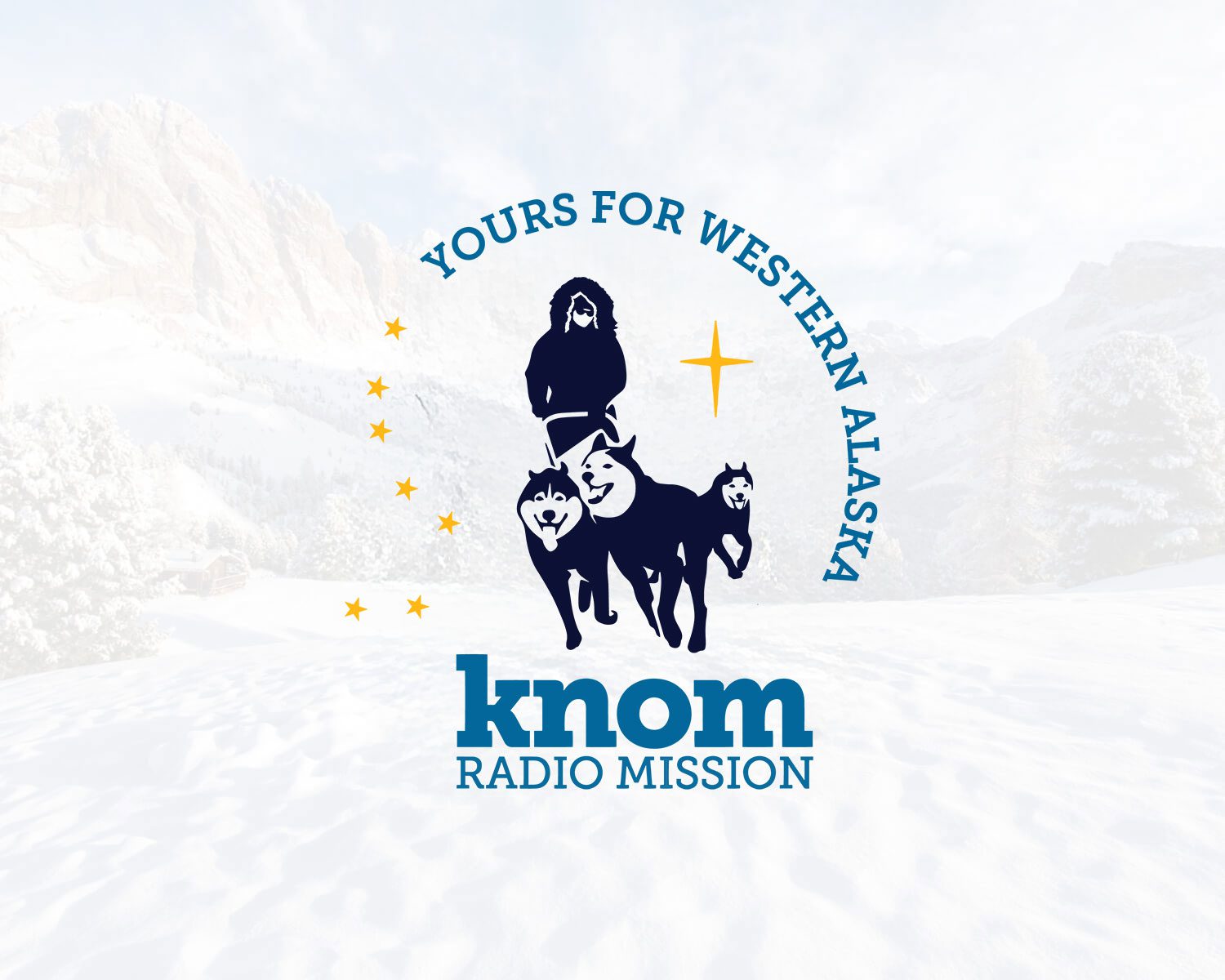January
A Christmas surprise: Volunteer fellow Miriam Trujillo and volunteer engineer Les Brown reveal they worked after hours to produce the annual Christmas play, which was originally cancelled due to staffing shortages.
The daughter of community volunteer Joleen Oleson, Tegan, is the star of the 2021 Christmas play.
February
It’s a month of celebrating local heroes. Jessica Saclamana, who has served the police department for 10 years, receives an award by the City of Nome. She is honored for going above and beyond and bringing a calm presence to tough situations. Roy Agloinga of White Mountain receives a governor’s award for co-authoring a language dictionary of the Fish River dialect of Iñupiaq. Late Nome Mayor Richard Beneville is remembered for his lifetime investment in the arts.

March
Race season comes around again, marking the 50th anniversary of the Iditarod Sled Dog Trail Race. It’s a historic occasion for Alaska and also KNOM, which has covered the race since the beginning.
The annual Nome National Forest returns to the treeless landscape, as last year’s Christmas trees are planted (or, rather, frozen) into the sea ice.
The city secures funding and moves forward with Nome’s deep draft port expansion, which has been in the works for decades.

April
Western Alaskans remember an Emmonak leader, Martin Moore Sr., who lived a life of dedicated service and strong faith.
Diomede leaders take drastic steps to help their island community survive with an infrastructure overhaul.
A major joint military exercise in Nome brings the National Guard to the airwaves. They shared with KNOM listeners what the guard had planned and how that would impact the community.

May
Western Alaska celebrates the success of home-
grown athletes. Nome erupts in celebration, with an impromptu parade, after the high school boys basketball team wins the state championship. On the varsity ski team, students learn teamwork and good sportsmanship. A “teacher on the trail” from Ohio inspires students by bringing Iditarod stories into classrooms across the United States.

June
Young Nomeites shine, as several placed in the Native Youth Olympics (NYO) Tournament. The state meet connects kids with their heritage through cultural sports, like the two foot high kick and the seal hop.
With a relatively new art program, students paint the beauty of their home town on school walls. An elementary school program inspires young “bookworms” by offering books to read.

July
The Nome Community gathers to honor fallen heros with a Memorial Day parade, words of recognition, songs and prayer.
A local research study demonstrates the impact of Inuit language knowledge and learning on community engagement. It supports that language is more than words — it holds key cultural concepts and communities together.
In education news, Nome students meet their “family from across the ocean” during a cultural exchange trip to Hawaii.

August
Father-daughter duo Richard and Debbie Atuk make it their mission to teach Iñupiaq, keeping their native language alive.
The Midnight Sun Festival marks the summer solstice. Community members put on a parade and mock bank robbery, jump in the Bering Sea, and play NYO games in celebration of the extra daylight.
The Indian Health Service visits several villages to identify sanitation and water infrastructure projects to fund.

September
Get Out the Native Vote encourages civic engagement. Listeners learn Iñupiaq via spot series
The new Anchorage studio is finished and fully operational, available for use by producers and community volunteers traveling through Anchorage.
Norton Sound Health Corporation installs an air sensor outside KNOM to monitor air quality in Nome.

October
Cheri Alstrom of St. Mary’s turns heads on the runway, where she donned Yup’ik regalia. She receives overwhelming support for representing her culture.
Nomeite Megan Onders starts a weekly show, titled Ocean Knowledge, to provide inspiration and tools for people to engage in ocean stewardship.
Interviews with Elders, such as Robert Iyatunguk’s story of how Christianity came to Shishmaref, are widely shared in short form.

November
Western Alaska is struck by a historic and devastating storm, ex-typhoon Merbok. More than just infrastructure is damaged. Subsistence cabins, which provide access to a main food source and are a point of cultural connection for many, were washed away. Many have lost the food they had stored for winter. Amid loss, communities come together in resilience and generosity to rebuild and heal.

December
KNOM country gears up for Christmas. Golovin Elder Jack Brown shares a story of meeting Santa, and wondering why he was wearing his dad’s boots, in second grade.
Students away at college share personal Love Letters to Home, appreciating the memories, communities and people who mean the most to them.
The Alaska Federation of Natives convention unifies rural communities from across the state, sharing faith, knowledge, culture and opportunities.







